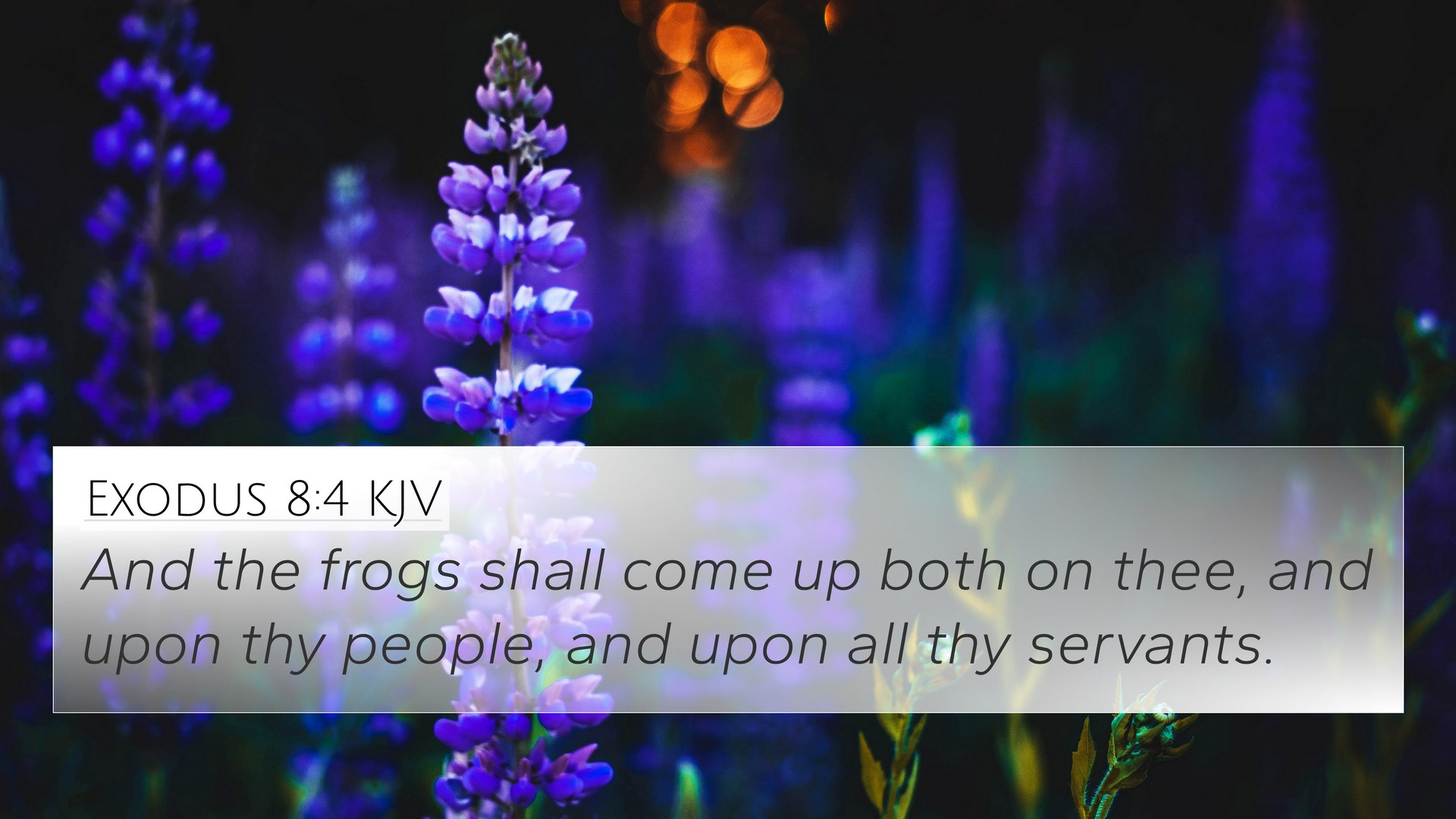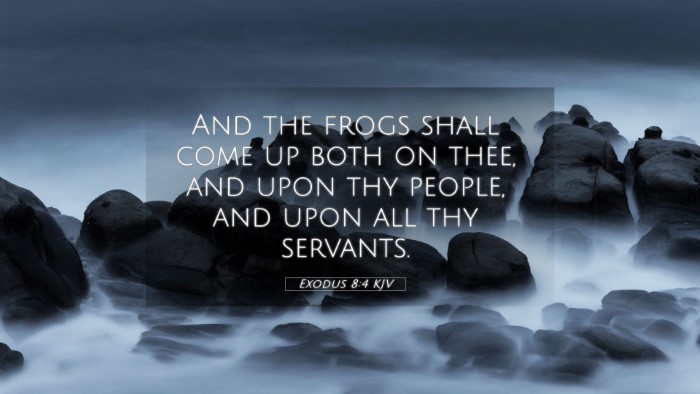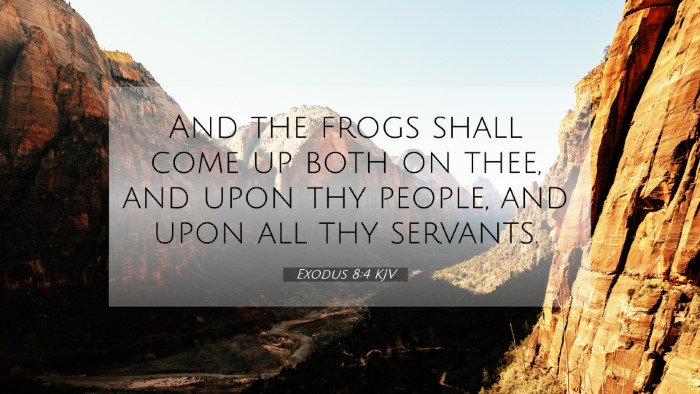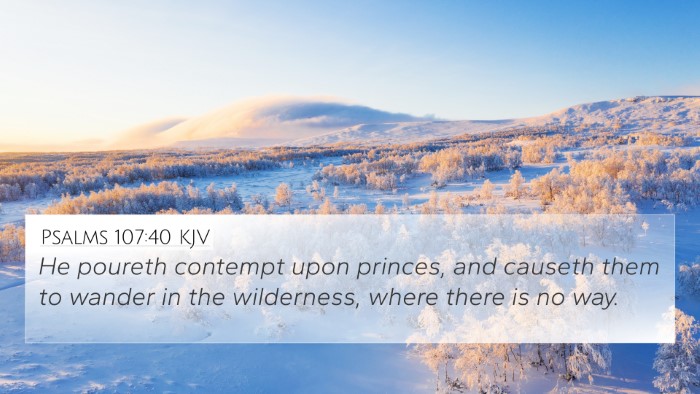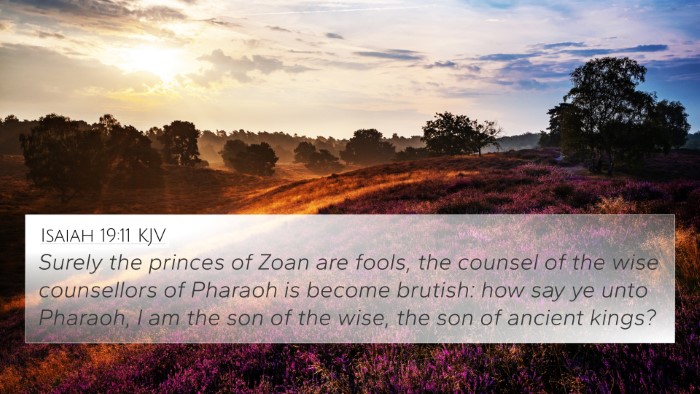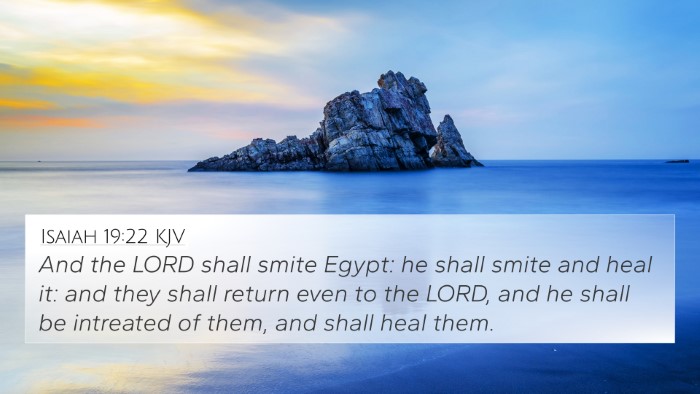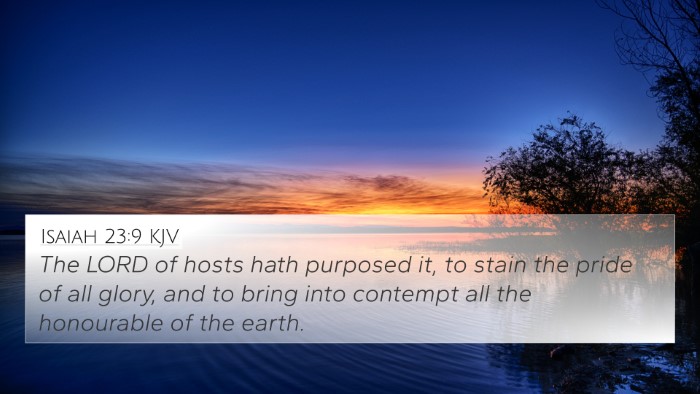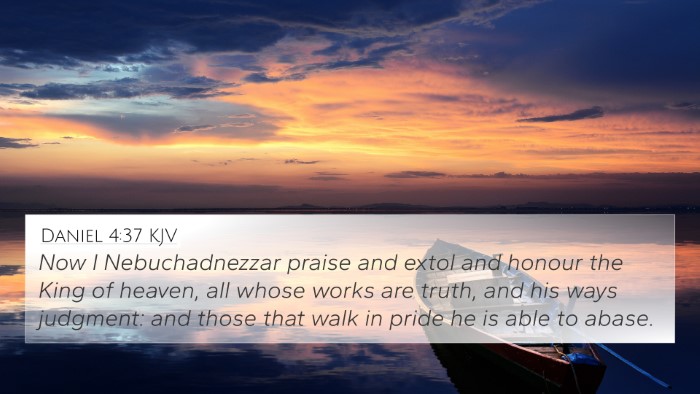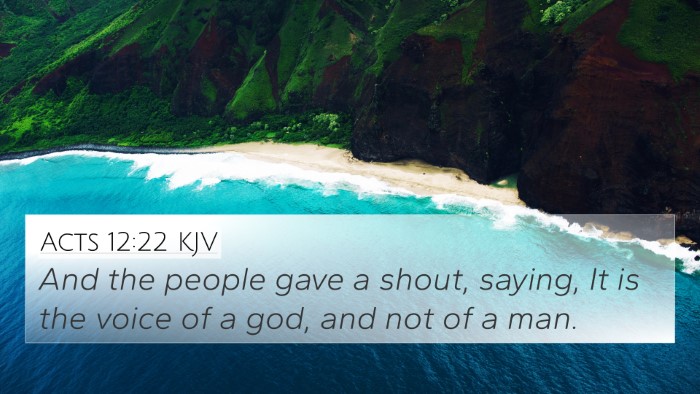Understanding Exodus 8:4
Exodus 8:4 states: "And the frogs shall come up upon thee, and upon thy people, and upon all thy servants." This verse is part of the narrative describing the plagues of Egypt, emphasizing God's power and authority over nature and the consequences of Pharaoh’s disobedience.
Contextual Background
The setting of this verse is foundational for understanding its meaning. The plagues were direct interventions by God to persuade Pharaoh to release the Israelites from slavery. The prevalence of frogs as a plague symbolizes both abundance and divine judgment.
Commentary Insights
- Matthew Henry: He highlights that the frogs represent an invasion of discomfort into the lives of the Egyptians. This affliction served as a miracle to show the Egyptians and Israelites the might of the God of Israel.
- Albert Barnes: Barnes notes that frogs, typically seen as harmless, became a curse—demonstrating how God can use even the most benign creatures to exercise His will. He stresses that the excessive multiplication of frogs was a sign of God’s displeasure.
- Adam Clarke: Clarke draws attention to the symbolism of frogs in the context of pestilence and rebellion. He suggests that the frogs' presence represents both a natural cycle turned into a divine message and the chaotic outcomes of rejecting God’s instructions.
Thematic Connections
Exodus 8:4 can be linked to numerous themes throughout the Bible, including:
- Obedience and Disobedience: The consequences of Pharaoh's refusal to heed God's command reflect a recurring Biblical theme of the results of disobedience.
- Divine Judgment: The plagues establish a pattern of judgment seen throughout scripture, where God uses physical manifestations to correct spiritual deficiencies.
- God's Authority over Creation: This verse showcases God’s sovereignty over nature, aligning it with the creation narrative and subsequent miracles.
Cross-References
This passage correlates with the following Bible verses that emphasize similar themes:
- Exodus 7:14-25: The first plague of turning the Nile to blood showcases God’s power over the Egyptians’ source of life.
- Exodus 10:1-2: God's intention to harden Pharaoh's heart further develops the narrative of divine judgment and human obstinacy.
- Psalms 105:30: This verse recalls the plague of frogs, reaffirming the historical significance of these events in the larger narrative of Israel's liberation.
- Romans 9:17: Paul references Pharaoh to exemplify God's purpose in raising individuals for His glory, showing a continual theme of divine sovereignty.
- Revelation 16:13: The imagery of frogs here symbolizes unclean spirits, connecting the idea of judgment to both Old and New Testament themes.
- John 10:10: This verse juxtaposes the intent of the enemy to bring chaos versus God’s intention for flourishing life, linking both spiritual and physical afflictions.
- Jeremiah 22:29-30: A proclamation against the house of Judah resonates the same notion of judgment faced due to disobedience.
Bible Verse Connection Insights
The interconnections between Exodus 8:4 and these verses can be explored through the lens of a comprehensive Bible cross-reference system:
- Looking at how God's signs and wonders serve to communicate His plans and punishments.
- Analyzing passages that reflect on themes of liberation and rebellion interwoven in both testaments.
- Using tools for Bible cross-referencing can deepen insight into the narrative by tracing parallels between Old Testament events and New Testament teachings.
Conclusion
Exodus 8:4 is not merely an account of a historical event but serves as a pivotal moment that highlights the themes of divine authority, judgment, and the consequences of disobedience. Understanding its meaning through the eyes of established commentaries and cross-referencing it with other verses enhances the richness of Biblical wisdom, interlinking the scriptures for deeper theological engagement.
